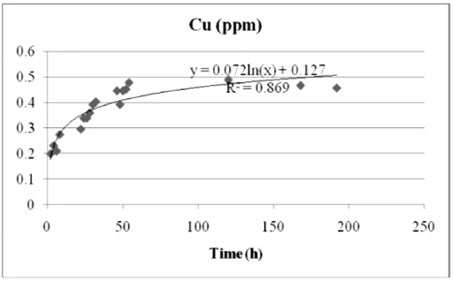The benefits of drinking water from copper bottles have been studied by scientists and many studies have found that drinking water stored in a copper vessel is a safe and beneficial health practice. Copper is a naturally occurring mineral that has been used for centuries to store and purify water. The ancient Ayurvedic principles have long espoused the benefits of drinking water stored in copper vessels.
One study, published in the Journal of Health, Population and Nutrition, found that storing water in a copper pot for just 16 hours eliminated harmful bacteria such as E.coli and salmonella, and increased the water's pH level, making it more alkaline. The copper content of the water was also found to be less than 0.2 ppm, well below the permissible limit set by the World Health Organization.
The study investigated the effectiveness of storing drinking-water in copper pots for killing contaminating diarrhoeagenic bacteria and the main findings are
-
Antibacterial Effectiveness: When drinking-water contaminated with various diarrhoeagenic bacteria, including Vibrio cholerae, Shigella flexneri, enterotoxigenic Escherichia coli (ETEC), enteropathogenic E. coli, Salmonella enterica Typhi, and Salmonella Paratyphi, was stored in copper pots for 16 hours at room temperature, no bacteria could be recovered on the culture medium. This indicates that the bacteria were effectively killed or rendered non-culturable by the copper pot.
-
Comparison with Control: In contrast, in glass bottles used as controls, the number of bacteria either remained the same or slightly increased after incubation, demonstrating the lack of antibacterial effect observed with copper pots.
-
Physicochemical Parameters: The study found that the physicochemical parameters of water, such as pH, total dissolved solids (TDS), alkalinity, hardness, chlorides, and sulphates, remained largely unchanged after incubation in copper pots. However, there was a slight increase in pH from 7.83 to 7.93 in water stored in copper pots.
-
Copper Content: The level of copper leached into the water stored in copper pots was well within the permissible limits set by the World Health Organization (177±16 ppb), suggesting the safety of using copper pots for water storage.
It also explain the significance of using copper pots for water purification in the context of rural areas and urban slums -
-
Cost-effectiveness: Copper pots offer a relatively low-cost solution for water purification compared to other methods such as filtration systems or chemical treatments. This makes them more accessible to populations with limited financial resources, common in rural areas and urban slums.
-
Ease of Use: Copper pots are simple to use and maintain. They do not require electricity, fuel, or complex installation processes, making them suitable for communities with limited infrastructure and resources.
-
Availability: Copper pots are readily available and can be locally sourced or manufactured. This ensures easy access to the purification method without reliance on external suppliers or distribution networks, which may be unreliable in remote areas.
-
Cultural Acceptance: In many regions, the use of copper pots for water storage and purification has cultural and historical significance. Therefore, introducing this method aligns with local traditions and may be more readily accepted by communities.
-
Effectiveness: The study mentioned earlier demonstrated the antibacterial effectiveness of copper pots in killing diarrhoeagenic bacteria. This ensures that water stored in copper pots is safe for consumption, reducing the risk of waterborne diseases, which are prevalent in rural areas and urban slums with poor sanitation infrastructure.
-
Long-term Solution: Copper pots represent a sustainable and long-term solution for water purification. Unlike disposable filters or chemical treatments that require ongoing expenses and replacements, copper pots are a one-time investment with minimal maintenance requirements.
Another recent study found similar results, with water stored in copper pots overnight becoming free of harmful bacteria and also becoming more alkaline, while still remaining safe for consumption with copper content of less than 0.475 ppm.

A third study, researchers stored water contaminated with bacteria in a variety of different water containers, including copper and silver containers, to determine their efficacy at removing biological contamination from drinking water. The study revealed that the copper vessels had a significant inhibitory effect on the bacteria in the water after only a few hours of exposure, and the pH of the water had also increased within a healthy range. The copper levels in the water remained within permissible levels even after several days.

These studies and others have shown that storing water in a copper vessel is not only safe, but can also have significant benefits for health. Copper is a naturally occurring mineral that has been used for centuries to store and purify water, and drinking water from a copper bottle is an easy way to incorporate more copper into your diet. While excessive copper intake can be harmful, using a copper water bottle in moderation and not storing the same water in it for more than 6 to 8 hours is a safe and healthy practice.
Did You Enjoy This Article?
Thank you for reading! If you enjoyed this article, you might also like the following articles: Copper and Health: A Historical Perspective
Relevant Product:

